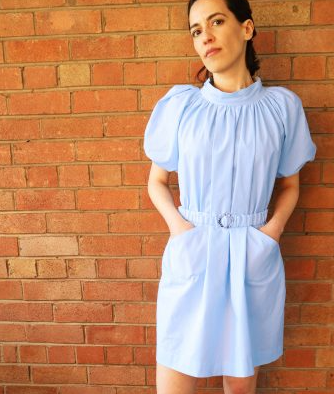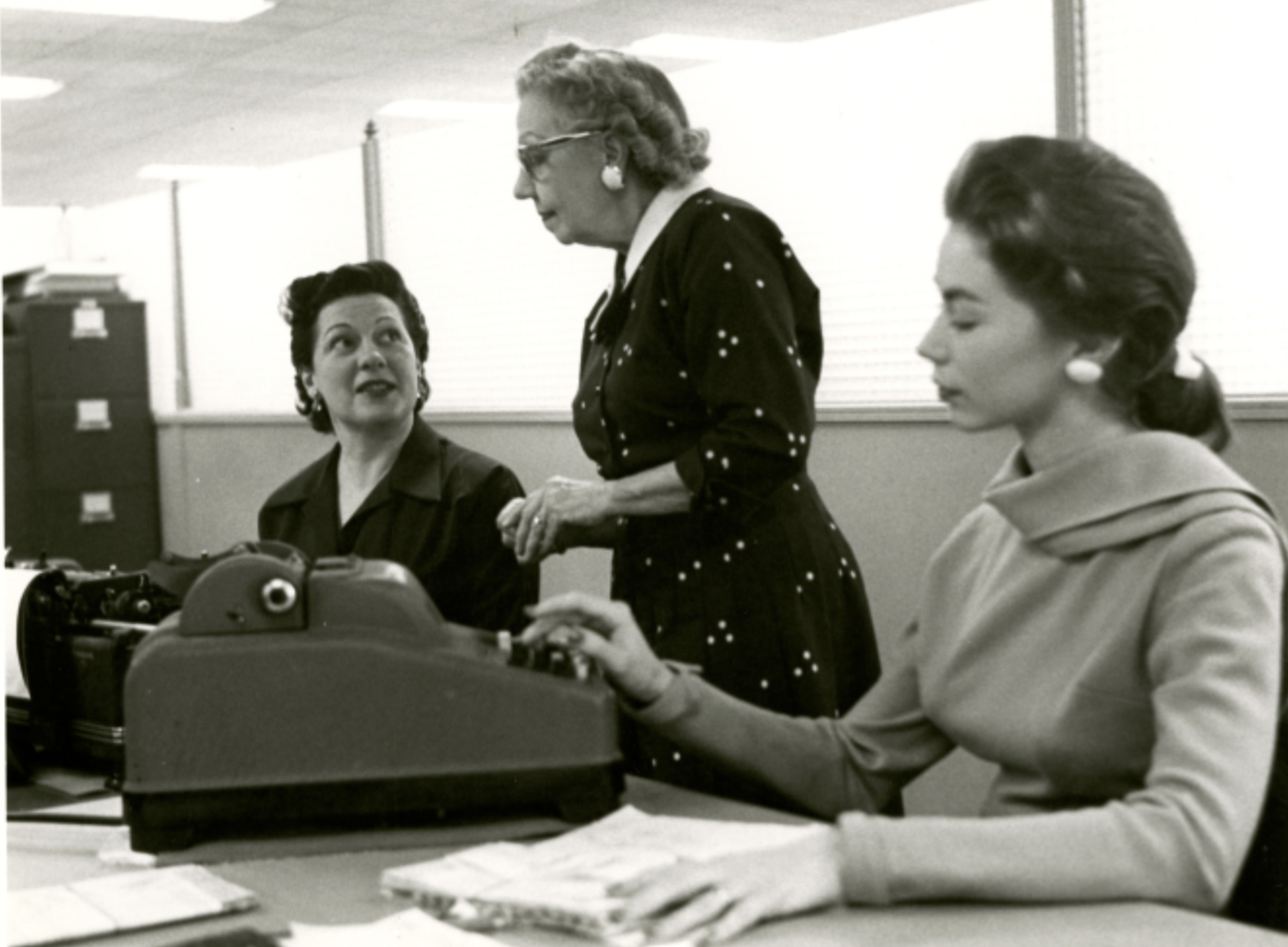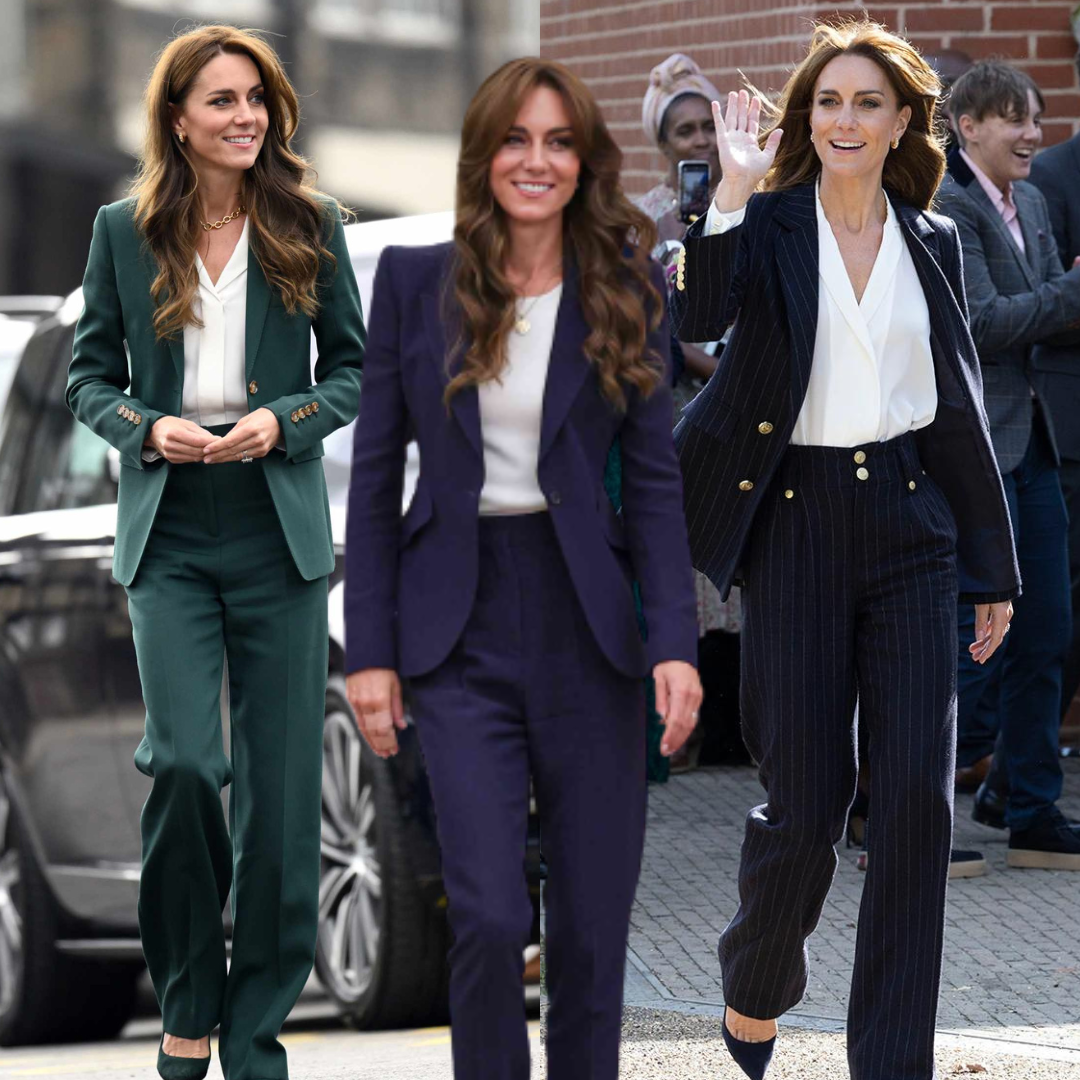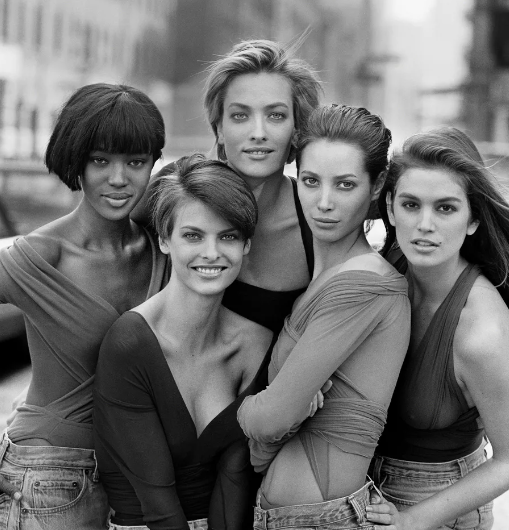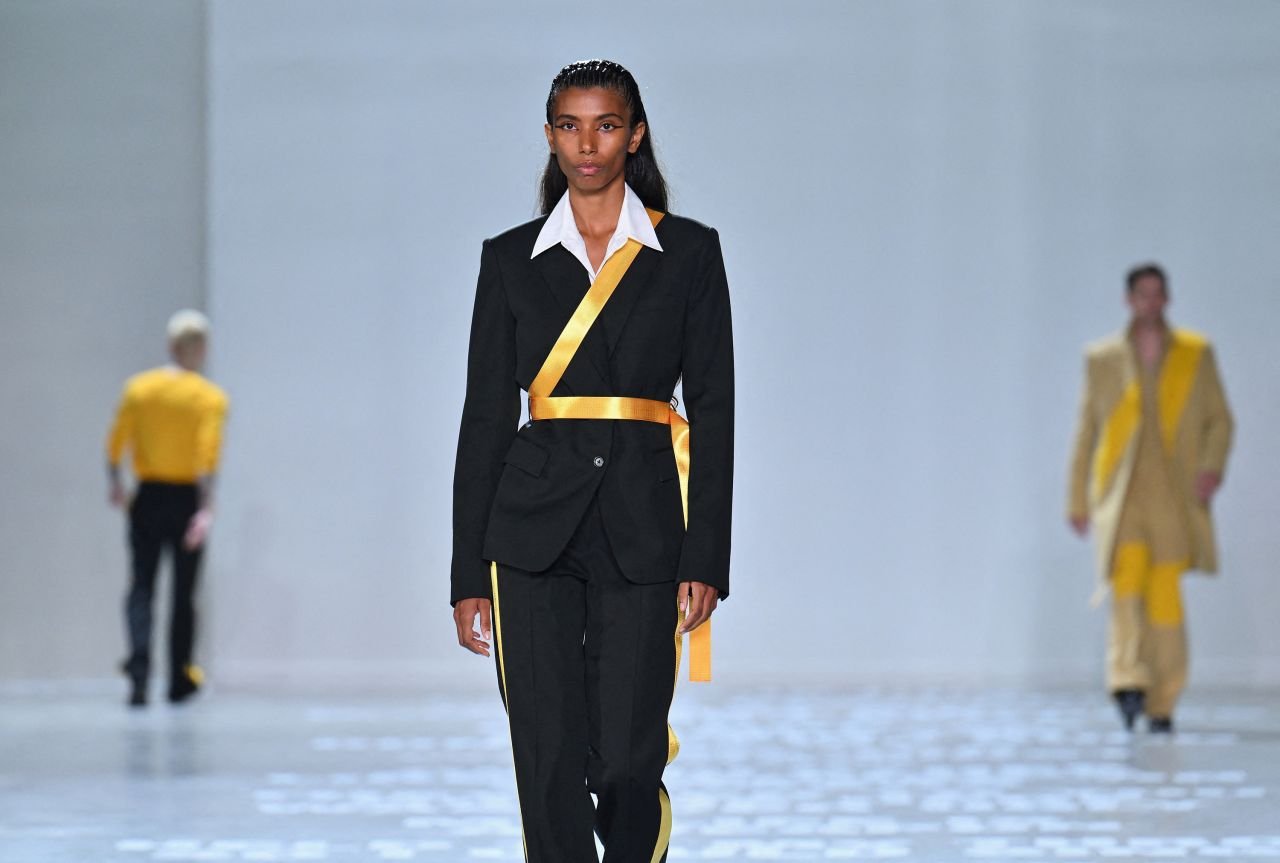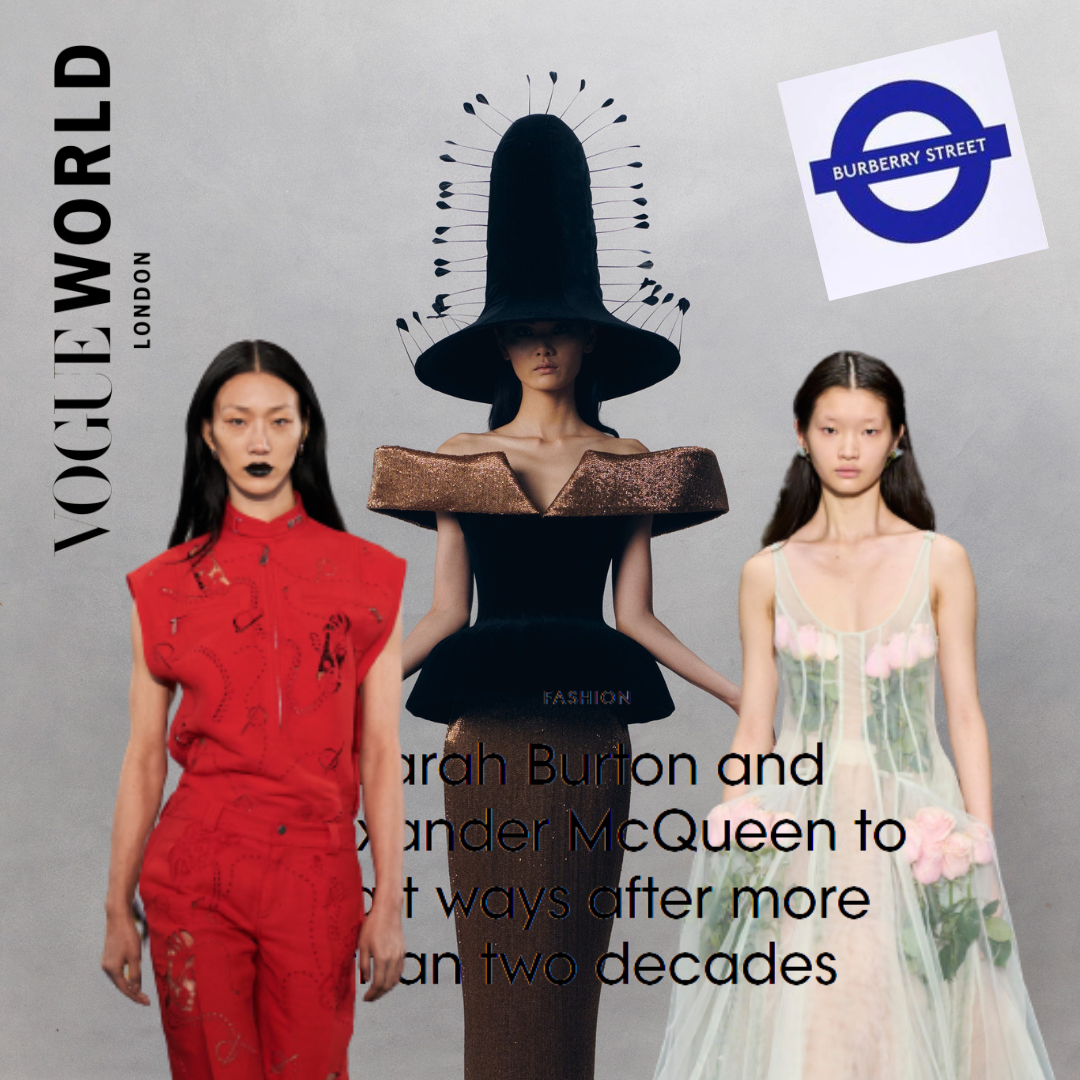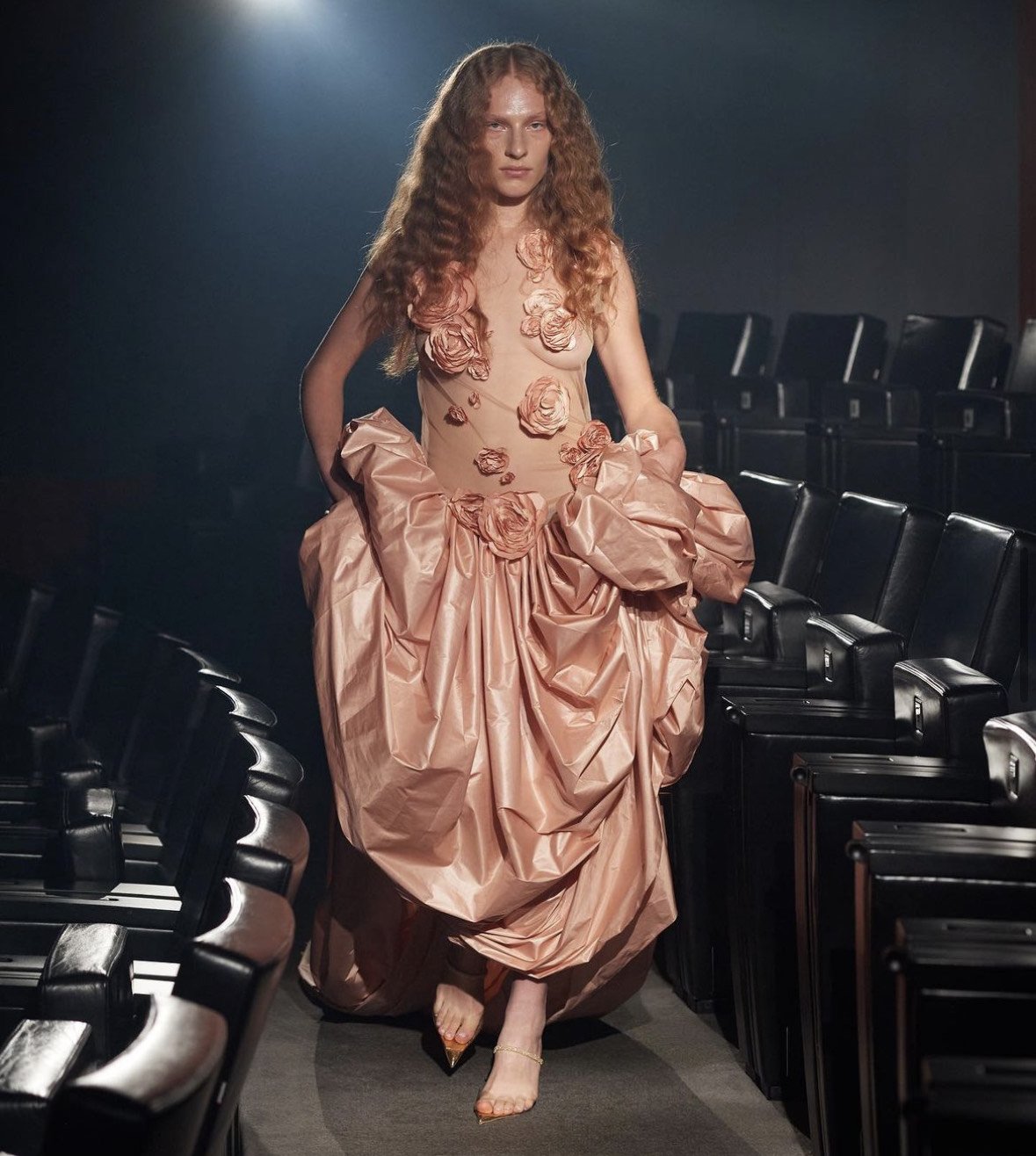Mauda - Creating Accessible Clothing
Fashion has always been a tool with which to express oneself, but that isn’t possible for everyone. In fact, only a small percentage of society can afford the clothes they want, have access to these clothes, can fit into them or even put them on in the first place. Accessibility is a topic rarely discussed openly in the fashion industry, but considering that at least 15% of the global population have a form of disability, myself included, it seems bonkers that brands aren’t doing more. There are many reasons why a disabled person could struggle with their clothes, perhaps they don’t have the dexterity to do the buttons, they’re unable to reach to their back to do up a zip or perhaps their clothes keep getting caught in their wheelchair. Thankfully, accessible clothing brands are starting to pop up, hoping to bring solutions to these issues. One of these such brands is Mauda, based in Scotland. Offering sustainable and accessible clothing at reasonable prices, Mauda is a small business with a big mission. I spoke to Mauda owner Carla to learn more!
In a nutshell, what is Mauda?
Mauda is a fashion brand for women, all women regardless of body ability. Mauda’s designs include adaptive features or adaptive versions of a design to ensure women can get a design they like in the version that best suits their needs.
When did you create your brand, and what was the driving force behind that decision?
Mauda launched in January 2021, during the lockdown. I worked in IT/Financial Services previously, but have always loved fashion. I’m from Portugal where fashion or Art-related careers, in general, don’t really offer the same opportunities or safe employment as other industries. So, fashion ended up always being something I did in my spare time, for myself. Things are different in the UK. There are lots of opportunities in different industries. So, in 2017 I decided to enrol in a Fashion Design course and plan a career change as I couldn’t see myself working in a corporate job forever. In 2018, as a result of a company restructure, my role was made redundant, so I took that as an opportunity to plan my move. I secured a secondment until December 2020 and used the time to plan the brand and fund the business.
What made you decide to create a brand focused on accessibility?
I always wanted the brand to break with pre-conceived outdated notions of fashion and beauty. It was after listening to a BBC interview with Sinead Burke – an Irish writer and disability advocate – that the plans to make accessible fashion really started developing. She’s very candid about her lived experience of disability and the challenges she faces from a lack of accessible design in general: fashion, architecture or even urban design. I looked further into adaptive fashion, watched/listened/spoke to other disability advocates and influencers and they all shared the same views. Everything they suggested to improve the dressing experience already exists. There was nothing “disruptive” in terms of how we design or manufacture. Simply a matter of brands taking an interest in doing things slightly differently to accommodate accessible requirements.
Unfortunately, accessible design wasn’t a subject explored in my fashion design course. There was the mention of “inclusive design” but the term includes such a broad range of disciplines, that it doesn’t give accessible fashion the visibility it deserves. Also, I realised how much of an ableist existence I’d had when the challenges faced by disabled people are so blatantly in our faces, but we just don’t acknowledge them. So, for me, it was a no brainer. More than breaking with outdated notions of fashion and beauty, I decided that Mauda’s main goal would be to help bring adaptive fashion into the mainstream. I know it won’t be easy, but we need to start somewhere, so Mauda is my starting point.
In your eyes, why is accessibility so important, especially so in the fashion industry?
Fashion has for the longest been one of the means individuals have expressed their individuality. If fashion isn’t accessible to all or if only a certain type of fashion is accessible to a group of individuals, then those individuals are not being given the opportunity to express themselves. Instead, they’re expressing how that industry perceives them. The World Health Organisation recognises disability as part of the human condition and is now working on its Policy on Disability and Action Plan to achieve disability inclusion and empowerment across all areas of work. We really need all industries to start shifting the mindset and actively take action to achieve these goals.
For as long as accessibility is seen as a “separate matter” or a problem for a specific group of people to address (i.e. fashion vs accessible fashion) we will not bridge the gaps that still exist. It’s important to have representation of different groups, but ensuring that there are enough product choices to address the needs of those individuals in the mainstream is equally as important. There’s been a number of stylish adaptive fashion brands emerging recently which has been great, but the real change will happen when fashion as an industry has accessibility embedded in their modus operandi as the norm, not the exception. If you can get a shirt in a multitude of colours, why not extending the options to an adaptive version of that shirt too? Body ability shouldn’t dictate where you can or can’t shop.
How would you describe your designs in 3 words?
Adapted, Stylish, Quality.
The ‘Caroline Dress’ - Shop HERE
What have you found the most challenging about creating garments in a more unique way?
The trial and error of experimenting with materials and features outside of their conventional application and usage. For instance, we associate Velcro with sports gear and wouldn’t for a second consider it for an occasion dress. But why not? Velcro can be very helpful for anyone with dexterity issues. All we need to do is design something that has functionality without compromising on style. The challenge comes because that material is so intrinsically linked to sports accessories and trainers, that it hasn’t really been tested in anger on other items, so… trial and error. And there can be lots of errors until something equally functional, comfortable and stylish is achieved. The plus side is that creating garments in such a unique way really allows you to “spread your wings” in terms of creativity.
As a small business, you also prioritise ethics, can you explain a bit about how you are aiming to keep your brand as sustainable as possible?
Although we have plans to grow the business, we want Mauda to remain a slow fashion brand. We want our clothes to help people define and express their unique style, i.e. timeless designs rather than designs in line with a very specific trend at a specific time and context. We invest in quality and work mainly with natural fibres to ensure our items last longer and can be cared for by the owner for as long as possible. We source the majority of our fabrics and packaging from local independent businesses like ours as we feel we are more in control of the end-to-end supply chain. We can also see and talk to the people behind those businesses. That’s something that will live with Mauda regardless of how far the brand goes.
What more can the fashion industry do to make fashion more accessible?
The fashion industry needs to include people from different backgrounds with different body abilities from the outset and not just after the collections have been designed. The industry needs to understand the requirements and that can only be achieved by working with the ones who understand what those requirements mean in practical terms. In addition to representation, which seems to be the main focus at the moment, fashion needs to focus on giving people a sense of style, comfort and dignity to be truly accessible.
In 5 years’ time, where do you see Mauda?
It’s early stages and very difficult to realistically assess where Mauda will be in 5 years’ time, mainly because we don’t know this brand outside of a pandemic context yet. Ideally, I’d like to think Mauda will be an established brand that people know and know what to expect from us. I still get the “you’re making adaptive, so that’s not for non-disabled people”. Hopefully, in 5 years’ time, people will simply find it natural to have collections with adaptive and non-adaptive versions of an item available in one place. If Mauda achieves that, I’ll be extremely happy.
And finally, what does fashion mean to you?
Fashion is the translation of an individual’s personality and state of mind into textures, colours and shapes. We exteriorize who we are and how we feel with what we wear. As a society, we adopt different colours for different occasions (in the West: black for funerals, white for your wedding for instance). As individuals, we do that in a personal context with what we wear on a daily basis. That’s why fashion is such an important aspect of our existence and why we need to ensure it’s accessible to everyone.
You can shop Mauda and learn more about its journey here: https://www.mauda.co.uk/

